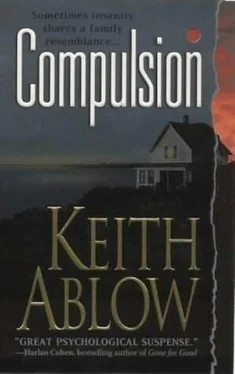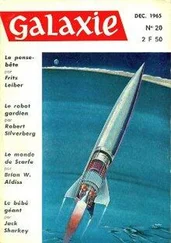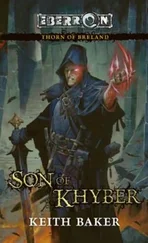"And if I step out on a limb and testify against Win, and Win goes free," Garret said, "then what do I do?"
I didn't have a good answer to that question. In the seconds I took to try to think of one, Garret started to walk away. "Where are you going?" I called to him.
He turned back toward me, but didn't stop moving. "Think about it," he said. "None of us can get away from Win. Billy still doesn't understand that. Otherwise, he'd head right back to the hospital." He turned, broke into a jog, and headed to the clubhouse.
I climbed into my truck and checked my home machine for a message from Billy, but he hadn't left one.
I had time before I needed to be at Brooke's funeral. I felt like I should use it to get my thoughts clear on what I had learned about the Bishop family. I downed a sandwich and two coffees at the 'Sconset Café then drove out to the Sankaty Head Lighthouse, opposite the Sankaty Head Golf Club. The light, perched on sandy cliffs, is visible from twenty-nine miles at sea. It was built in 1850 to help sailors navigate the treacherous Nantucket shoals, a beautiful but shallow graveyard of ships.
I parked near the lighthouse and walked a quarter mile into the tall grass that surrounds it. The sun was warm and bright, and the ocean stretched endlessly before me. There are those who insist it is impossible to walk the bluffs from the center of Siasconset to the lighthouse and arrive with a single negative thought in mind. Maybe I should have taken that route, because my mind was full of them.
The list of suspects in Brooke's murder was getting longer, not shorter; it now included every person in the Bishop house the night she was killed.
Certainly, Darwin Bishop headed the list. He was the only one with a history of domestic assault, a history that stretched back decades and reached all the way to the raw welts on Billy Bishop's back. He was the only one who had threatened me or tried to shake me off the case. It was he, so far as I could tell, who had not wanted the twins. He may have been enraged by their intrusion on his plans for a fresh start with a new love-Claire Buckley.
But then there was Billy. Anyone with a history of fire-setting, torturing animals, destruction of property, theft, and, yes, bedwetting had the pedigree of a true psychopath. Add to that the pent-up rage reflected in his self-abuse-biting himself, cutting himself, and pulling out his hair-and the prescription for disaster was complete.
My mind moved on to Claire Buckley. How draining was it for her, after all, to serve as a glorified baby-sitter when being the lady of the household seemed within reach? After traveling the world with Darwin Bishop, sharing luxury suites and rare bottles of wine, how did she feel when Julia announced she was pregnant again-and with twins? Had Darwin told her that leaving his wife would have to be put off? Beneath the care and concern Claire had shown the infants, did she look upon them with bitterness, as living embodiments of her billionaire lover's continuing bond with his beautiful, supposedly estranged wife?
I thought back to Claire's revelation of Julia's ambivalence about having had the twins, including Julia's statement that she "wished they were dead." Had Claire truly given me that data reluctantly? Or had she scripted the disclosure in order to distract me from her own motives? How could I be certain that Julia had made the statement at all?
That brought me to Julia herself. Would I take her more seriously as a suspect if I wasn't moved by her? I had to admit that Julia's postpartum depression, complete with feelings of estrangement from Brooke and Tess, increased the risk of her harming them. But it didn't increase that risk dramatically. The vast, vast majority of women with postpartum depression, after all, never strike out at their infants.
Finally, Garret himself had begun to worry me. Growing up with Darwin Bishop had seemingly sapped him of any hope for a real future. I wondered whether his prison camp mentality might lead him to put other family members "out of their misery." Could he have killed Brooke, I wondered, in order to free her?
I shook my head. Darwin Bishop had vowed that neither the police nor the District Attorney would be able to prove Billy's guilt because anyone at home the night Brooke was killed could be the murderer. It almost felt as though the family was actively organizing to make Bishop's case, choreographing a dizzying dance to keep me off balance.
There was another way to think about the maze of possibilities. It was true that every member of the family had had the opportunity to kill Brooke. But each might also have had part of the motive. The family's collective psyche, working largely unconsciously, might have silently spurred one of its members to act on behalf of the group. Maybe that was the dynamic making it so difficult to settle on a lead suspect.
Some students of the Kennedy assassination, for example, discount the theory that an organized conspiracy existed to do in the president. Instead, they say, a convergence of interests from many different venues-including, but not limited to, the military, the CIA, and the Mafia-worked silently and almost magically to place the president in jeopardy. According to this vision, Lee Harvey Oswald acted alone, but as the culmination of those myriad dark forces, in the same way that a great and popular leader can express and achieve goals that represent the culmination of our collective hope and courage.
That vision of how Brooke had come to die bothered me more than any other. Because the same forces that would have emboldened her killer still existed. And, most likely, their next target would be Tess Bishop.
I took out my mobile phone and dialed North Anderson. His office patched me through to his cruiser. I asked him whether he had made any progress getting Tess off the Bishop estate.
"No go," he said. "I talked personally with-Sam Middleton, the executive director of the Department of Social Services. He told me what I guess I already knew: Regardless of the statistics, kids aren't yanked out of a home just because there's been a murder, especially when somebody has been charged with that murder. You didn't see Jon-Benet's brother placed in any foster home after she was killed."
"That's just DSS policy Middleton is parroting," I said. "Isn't there a creative way around it?"
"I tried Leslie Grove, the medical director of Nantucket Family Services. She could file a 'child at risk' petition with DSS, but says she won't go near it without evidence that Tess has been directly threatened."
"Then I guess Julia is the only one who can make the difference," I said. "I'll see if I can get a minute with her at the funeral. Her mother's coming in with her from the Vineyard. Maybe they could go back together, with the baby."
"Sounds like you're comfortable the baby would be safe with them," Anderson said.
In my heart, I was comfortable with that. But I knew Anderson was still concerned I had lost perspective where Julia was concerned. "We don't have a way to isolate Tess from the entire family," I said. "The next best thing is to keep her away from as many family members as possible. For my money, that should include Darwin Bishop."
"Fair enough," Anderson said. "Hell, if it made anyone feel any better, the kid could stay with Tina and me."
"Thanks," I said. "I'll make the offer. I wouldn't hold my breath, though."
"Did you get to talk with Garret?" he asked.
"For five minutes. He goes on the list. He said Brooke was better off dead than living with Darwin. I didn't like the sound of that."
"Any more good news?" he said sarcastically.
"Absolutely," I said. I needed to let Anderson know we should at least touch base with the baby nurse Julia had fired. "When I spoke with Claire, she mentioned a private duty nurse Julia had hired to care for the twins. Kristen Collier, from Duxbury. Julia argued with her and fired her about a week after Brooke and Tess were born. I guess it's worth talking to her. She still might have a key to the place. I'd just like to know she was somewhere other than Nantucket when Brooke died."
Читать дальше












